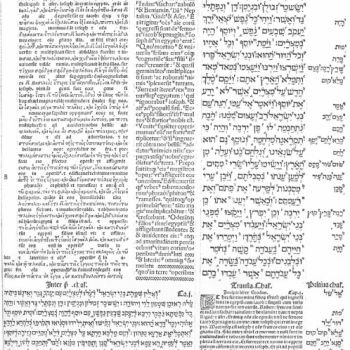Ideas to Consider
We have gleaned a number of insights from our look into the early church period, some of which are, no doubt, surprising to our contemporary sensibilities. As we conclude this chapter, let's summarize:
1. The official books of the Old and New Testaments were settled at a relatively late date. The Holy Spirit's guidance of the growth of the early church was going on at the same time as settling the biblical books.
2. Throughout the writings of the early church fathers we see a focus on how the Scriptures relate to human salvation, to the conversion of life. The aim is not primarily to convey historical events (though that is, as Origen notes, most frequently a secondary goal), but more to form us into the image of Christ, that is to lead us into a full-fledged conversion of life.
3. Even when the official books of the Old and New Testaments were settled, the early church recognized the importance of books beyond those officially named as canon. We learned that Athanasius, in the very same letter that named the canonical books, affirmed the importance of certain books that went beyond the canon. For the most part, these are the books that are in the Catholic bible, but not generally in protestant bibles.
4. The church had a strong sense of the Spirit's attendance to the process whereby the Scriptures came into existence and became identified as the Scriptures. Origen, as we saw, clearly believed that they contain what God intended.
5. Coupled with the belief that the Scriptures contain what God intends, one of the two major strands of interpretation held that the Scriptures sometimes contain non-historical content. Origen builds the defense for this view.
6. The interpretive approach defended by Origen and the Alexandrian school was less likely to draw heretical accusations in its interpretation of the Bible.
7. While the early church clearly considered the Scriptures to be inspired by God, it never claimed that the Scriptures were the only writings inspired by God. In fact, they occasionally identified other writings as inspired by God and encouraged that they be read and seriously studied.
You may recall one of the many versions of the story of the youngster who desperately wants a pet duck. In response to the child's entreaties, the parents buy a young duck for their son. The boy is overwhelmed with joy at the gift and immediately takes it out for play. The boy loves the duck so much, he wants to hold and embrace it. However, he loves it too much and as his embrace grows tighter and tighter, the duck's breathing becomes labored and it is eventually killed. The boy is heartbroken over the loss and cannot understand how this has happened. The thing he loved so much he has strangled, precisely because he loved it so much.
Perhaps we contemporaries do this with the Scriptures. We love them so much and are so thankful to God for giving this wonderful book to us. In the process, we grasp it tightly, imposing our sense of what it means to honor and respect it upon the text. In our very attempt to "love it," we strangle the Spirit's ability to speak to us through it, because we want to "love it" on our own terms. As the parable of the duck reminds us that living things must both be loved and respected in their own right, so too the early church's willingness to let the Scriptures speak on their own terms, not insisting it conform to our presupposed notions of genre and history, but rather giving the Spirit full freedom to use all the wide range of writing tools (metaphor, simile, exaggeration, and so on) proves to be instructive for us so many centuries later.
As we are discovering in our study together, taking a look at the writings of the early church can often reveal how often our contemporary faith communities overlook the deep and wide riches that constitute the broader Christian tradition. The Scriptures are one example of that. Let's now turn our attention to another.




